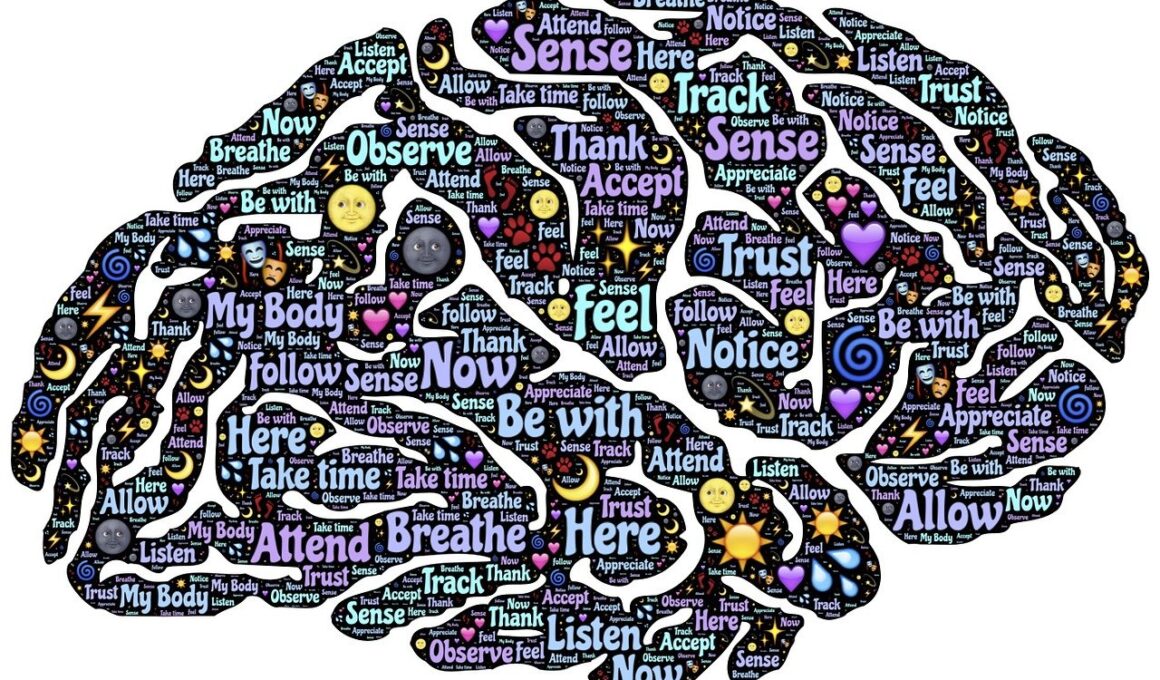Enhancing Athletic Performance Through Mind-Body Harmonization and Hormone Balance
The intricate relationship between the mind and body significantly impacts athletic performance, emphasizing the need for a holistic approach to training. A well-balanced hormonal environment contributes to optimal performance by regulating various bodily functions, including metabolism, muscle recovery, and energy levels. When athletes harmonize their mental and emotional states with physical training regimens, they can achieve exceptional results. Stress management techniques, such as meditation, yoga, and deep breathing, play a crucial role in maintaining hormonal balance. These practices not only enhance focus but also reduce cortisol levels, a hormone released during stress that can negatively affect performance. Moreover, incorporating mindfulness into training can foster a deeper connection to one’s body, leading to improved muscle function and overall agility. In this regard, fostering a greater awareness of the body’s signals enables athletes to respond more effectively during competitions. Nutrition also closely ties to hormonal health, with certain foods promoting hormone production and balance. Athletes are encouraged to maintain a balanced diet rich in whole foods to support their hormonal health. Ensuring proper nutrition, mental well-being, and physical fitness creates a comprehensive environment conducive to superior athletic achievement.
Among the essential aspects of athletic performance, hormonal health plays a pivotal role that should not be overlooked. Hormones such as testosterone, estrogen, and growth hormone are critical for muscle development, fat loss, and overall energy levels. Maintaining an appropriate balance of these hormones can significantly enhance an athlete’s ability to train effectively and recover fully. Biochemical factors can be affected by lifestyle choices, including nutrition, sleep patterns, and stress levels. Consistent sleep patterns allow the body to recover and replenish hormone levels, which directly correlate to the quality of athletic performance. Implementing a schedule that secures adequate and restful sleep can make a remarkable difference in an athlete’s physical and mental fortitude. Additionally, exercises that involve strength training tend to increase testosterone levels, aiding in muscle mass gain. Pairing these workouts with proper nutrition—rich in proteins, healthy fats, and appropriate carbohydrates—can alleviate fatigue and improve stamina. Mind-body techniques, including visualization and progressive muscle relaxation, can further reinforce hormone balance. Integrating these tools empowers athletes to unlock their potential while achieving peak mental and physical conditions during competitive events.
Mindfulness and Hormonal Balance
Mindfulness is an invaluable tool for athletes aiming to enhance their performance and promote hormonal health. Through practices like mindfulness meditation, individuals can cultivate a heightened awareness of their thoughts and physical sensations, which can lead to improved focus and performance. By reducing anxiety and stress, mindfulness can aid in balancing cortisol production, allowing for consistent energy levels. Research has shown that athletes who engage in mindfulness practices often report improved mental clarity and reduced performance anxiety. Furthermore, a harmonious state of mind can positively influence the hormonal cascade that governs physical exertion, leading to enhanced endurance during competitions. As athletes become more attuned to their bodies, they can also detect early signs of fatigue and discomfort, helping them manage training loads effectively. With higher awareness, athletes can develop strategic plans for recovery and growth. Techniques such as mindful breathing and body scanning can promote relaxation during high-pressure situations, ensuring optimal performance. In building emotional resilience through mindfulness, athletes can maintain a balanced hormonal environment that not only supports physical advancement but also fortifies their mental engagement with the sport.
The connection between mindset and athletic performance is reinforced by the intricate workings of neurotransmitters in the brain. Substances like serotonin, dopamine, and endorphins play key roles in regulating both mood and motivation—two factors crucial for achieving desired outcomes in sports. Higher levels of serotonin can enhance one’s state of happiness and satisfaction, which is fundamental when facing the demands of training and competition. Meanwhile, dopamine drives motivation by instilling a sense of reward when progress is made, ensuring athletes remain dedicated to their goals. Endorphins, often referred to as ‘feel-good’ hormones, are released during physical activity and offer pain relief, aiding recovery and facilitating a more enjoyable training experience. It is essential for athletes to integrate practices that elevate their mood and foster an optimistic outlook, such as engaging in enjoyable social activities or exploring hobbies outside of sport. An environment filled with positive reinforcement and encouragement can heighten these valuable hormonal effects, contributing significantly to overall performance enhancement. Managing stress of competition through emotional control and mental strength strategies allows athletes to access their full potential.
The Role of Nutrition
Nutrition is a cornerstone of both mind-body connection and hormonal health, significantly influencing athletic performance. Consuming a variety of nutrient-dense foods can help to balance hormones, emphasizing the importance of macronutrients and micronutrients in an athlete’s diet. Proteins, healthy fats, and complex carbohydrates serve distinct yet complementary roles in sustaining energy levels. High-quality proteins, such as lean meats, beans, and legumes, facilitate muscle recovery and hormone production. Healthy fats derived from sources like avocados, nuts, and olive oil play pivotal roles in hormone synthesis. Additionally, complex carbohydrates, including whole grains and vegetables, provide a steady release of energy necessary for training sessions. Hydration is another vital component impacting performance and recovery; adequate fluid intake helps regulate hormonal balance and prevent fatigue during exercises. Athletes should avoid processed foods and excessive sugar, which can disrupt hormone levels and induce unnecessary spikes in energy followed by crashes. Focusing on whole foods encourages a more stable energy output and fosters a balanced hormonal environment conducive to peak performance. Dietary adjustments, in tandem with mental exercises, lead to tangible improvements in both physical endurance and emotional resilience.
Combining physical training with mindful practices not only enhances athletic prowess but also promotes overall hormonal health. Activities such as tai chi and yoga integrate physical movement with mindful awareness, creating a natural synergy that reorganizes the body’s systems. These practices not only engage muscles but also stimulate hormonal responses that encourage recovery and rejuvenation. The calming effects of such workouts can lead to reduced stress and anxiety levels, supporting hormonal balance and maintaining optimal performance. Engaging in low-stress activities while training, like group classes or team sports, can reinforce social connections, which in turn influence the release of oxytocin, a hormone associated with bonding and trust. Building a supportive network of fellow athletes can help create a motivational environment that bolsters perseverance and physical drive. As each individual cultivates a unique blend of physical and mental disciplines, they discover remarkable resilience and empowerment that translates into successful performances. Ultimately, incorporating diverse physical activities that promote both fitness and mindfulness results in improved hormonal well-being and lays the groundwork for thriving athletic careers. Successful implementation of these techniques will transform any athlete’s approach to reaching their potentials.
Conclusion
In conclusion, the interdependence of mind-body connection and hormonal health profoundly impacts athletic performance. To optimize this synergy, athletes are encouraged to adopt a comprehensive approach that combines mental techniques, physical conditioning, and proper nutrition. Understanding the power of mindfulness and its positive ramifications on hormone levels reinforces the importance of mental well-being within competitive sports. This includes utilizing mindfulness practices to enhance focus and reduce anxiety while nurturing instincts necessary for peak achievements. Additionally, appropriate nutritional strategies that promote hormonal equilibrium are fundamental to sustained athletic success. By ensuring an adequate intake of essential nutrients, athletes can cultivate their physical and mental capabilities while maintaining resilience against stressors. Furthermore, engaging in holistic practices fosters a deeper awareness of one’s body, allowing for more effective management of training intensity and recovery needs. By striving towards harmonious balance across all facets—mental, physical, and hormonal—athletes can unlock remarkable potential in their performance endeavors. Adopting these principles will not only contribute to excellence in competition but also promote well-rounded health and longevity in one’s athletic journey.


